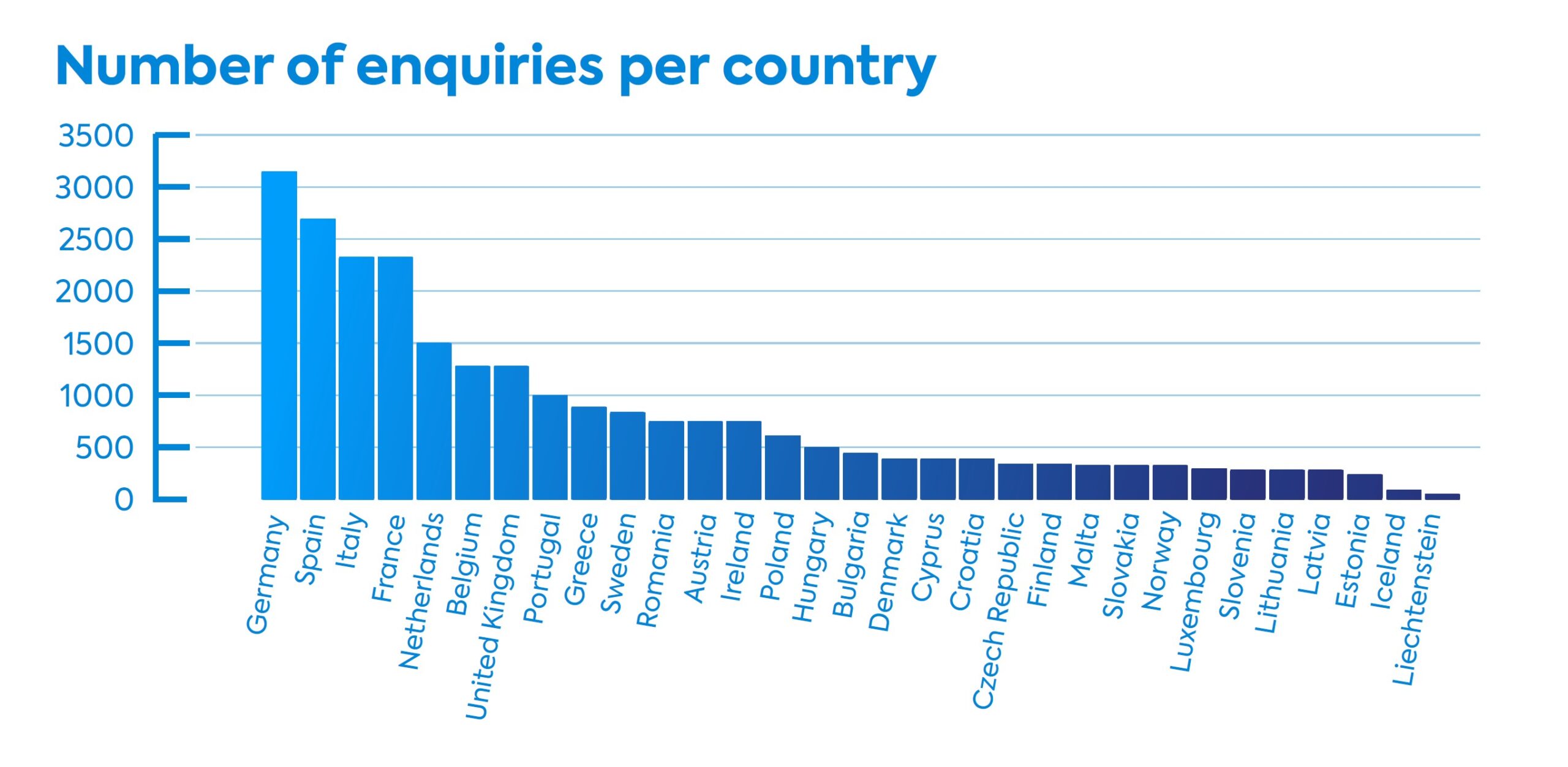Home>News>COVID-19 and Brexit make Social Security, Residence and Entry rights remain key concerns in the 2021 Your Europe Advice Annual Trends Report

Citizens faced obstacles imposed not only by national administrations but also by private entities. Many citizens were well informed but unable to find any remedy for their situation.
In 2021, the most important topics, in terms of the number of received enquiries, were social security, residence and entry procedures. YEA received a higher number of social security enquiries (26%), mainly because of the COVID-19 crisis which had an impact on all the European social security systems and Brexit as the situation regarding the law applicable to social security coordination after 31 December 2020 remained unclear for many EU and UK citizens.
YEA received a higher number of social security enquiries (26%), mainly because of the COVID-19 crisis which had an impact on all the European social security systems and Brexit as the situation regarding the law applicable to social security coordination after 31 December 2020 remained unclear for many EU and UK citizens.
These trends, that are analysed in more depth in the YEA annual trends reports 2021, suggest that citizens’ struggles with getting informed and accessing their EU rights remain persistent and were further heightened due to the crises, and that EU national authorities are often misinformed and unable to meet citizens’ needs.
 The enquiries received related to all 27 Member States, as well as Norway, Iceland and Liechtenstein. YEA received less enquiries related to the UK compared to 2020 (the UK is now in 7th position compared to 5th position last year) a logical consequence of Brexit. There was an increase in the number of enquiries related to Germany, Spain, Italy and France.
The enquiries received related to all 27 Member States, as well as Norway, Iceland and Liechtenstein. YEA received less enquiries related to the UK compared to 2020 (the UK is now in 7th position compared to 5th position last year) a logical consequence of Brexit. There was an increase in the number of enquiries related to Germany, Spain, Italy and France.
In 2021, COVID-19 and Brexit exacerbated existing problems. The COVID-19 crisis has caused far-reaching changes over a very short period. Tele-working and digital work, although not new phenomena, grew exponentially during the COVID-19 pandemic and lockdown restrictions. The pandemic also impacted workers’ mobility.
Read the full report here and access the Infographic here.
"*" indicates required fields
ПВ рамките на информационната кампания по фонд „Партньорство“ по проект „ПАКТ“ предстои провеждането на серия от уебинари, насочени към представяне на насоките за кандидатстване, както и към задълбочаване на ключови […]
През месец май фонд „Партньорство“, част от проект „ПАКТ“, беше представен пред представители на граждански организации и читалища в Пловдив, Плевен и София. В трите града срещнахме активни, вдъхновени участници, […]
През изминалата седмица в Велико Търново, Варна и Бургас се проведоха първите информационни дни по фонд „Партньорство“, част от проект „ПАКТ“. В рамките на инициативата над 70 представители на граждански […]

